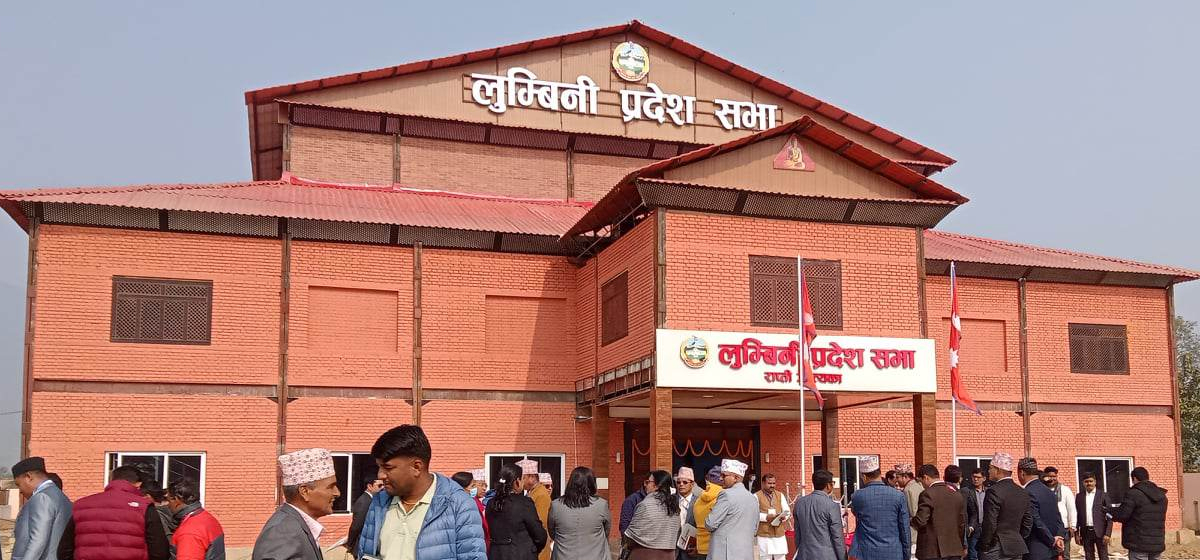
OR
Nepal’s foreign policy
Nepal’s foreign policy
As the number of Nepali nationals visiting and staying in other countries has steadily increased, so has Nepal’s diplomatic presence abroad. The country now has 36 diplomatic missions—29 embassies, two permanent missions and five consulate generals—across six continents. Nepal has looked to expand its diplomatic reach also because it realizes the importance of building economic linkages far and wide in order to benefit from the forces of globalization. It makes sense too. Perhaps with the sole exception of the hermit kingdom of North Korea, every country in the world is exploring new sources of economic growth and prosperity for its people. It is no different for Nepal. But even as we look to establish mutually-beneficial relations with more and more countries, in every part of the world, we need to first ask ourselves if we are clear about our foreign policy priorities. Yes, we now have 36 foreign missions, but what are their expected roles? How do we effectively leverage them to our advantage so that they don’t become white elephants that, instead of contributing to national prosperity, unnecessarily burden state coffers?
It is strange that the country should still hew to the Cold War-era principle of “non-alignment”.
According to the new constitution, Nepal’s international conduct will be directed at “enhancing the dignity of the nation in the world community by maintaining international relations on the basis of sovereign equality, while safeguarding the freedom, sovereignty, territorial integrity and independence and national interest of Nepal”. That isn’t saying much. How is this generic statement included in the Directive Principles of the new constitution any different from the foreign policy priorities of any other country? As if to answer this question, the constitution goes on to explain Nepal’s expected international role, which is to “conduct an independent foreign policy based on the Charter of the United Nations, non-alignment, principles of Panchsheel, international law and the norms of world peace”. Towards that end, the constitution says that old bilateral and multilateral treaties are to be revised and new ones signed. These are more helpful indicators of Nepal’s foreign policy, but they too are inadequate.
It is strange that the country should continue to hew to Cold War-era principle of “non-alignment” which does not make any sense in the changed context. The Cold War is long over and the world is no longer neatly divided in two competing blocks, with small countries like Nepal forced to pick sides. Also, why is there no mention of economic diplomacy in the new constitution, when Nepal is ostensibly expanding its global reach for greater economic benefits? In fact, in this day and age, it is impossible to talk of international relations by excluding economic diplomacy. But the constitution is not the only problem. Why, for instance, is Denmark closing its residential embassy in Kathmandu? It appears that when the Danes floated the proposal to go, our government officials made no efforts to persuade them to rethink. Denmark is an important bilateral partner of Nepal, contributing as much as US$ 35 million a year in development assistance. The Danes now want to cut back on its aid and in two years shut its Nepal mission. Perhaps they were dismayed by Nepal’s poor utilization of their aid. Perhaps they wanted to pare down on their expenses. Whatever the case, it does not send a positive message to the rest of the diplomatic community in Kathmandu. To start with, we need more clarity about foreign policy goals.
You May Like This

Home is where the heart lies
DAMAK, June 1: "Nepal gave us shelter for 25 years. Now we just want to go back to our land. Our... Read More...

Where to study after +2 ?
KATHMANDU, August 24: One doesn’t need to go to a foreign country to receive quality education. If we are to draw... Read More...

Where ideas get wings
KATHMANDU, Aug 5: Santosh Adhikari and Dilip Thakur are two undergraduate engineering students from Kathford College in Kathmandu. One day they... Read More...


Just In
- Rautahat traders call for extended night market hours amid summer heat
- Resignation of JSP minister rejected in Lumbini province
- Russia warns NATO nuclear facilities in Poland could become military target
- 16th Five Year Plan: Govt unveils 40 goals for prosperity (with full list)
- SC hearing on fake Bhutanese refugees case involving ex-deputy PM Rayamajhi today
- Clash erupts between police and agitating locals in Dhanusha, nine tear gas shells fired
- Abducted Mishra rescued after eight hours, six arrested
- Forest fire destroys 13 houses in Khotang
















Leave A Comment